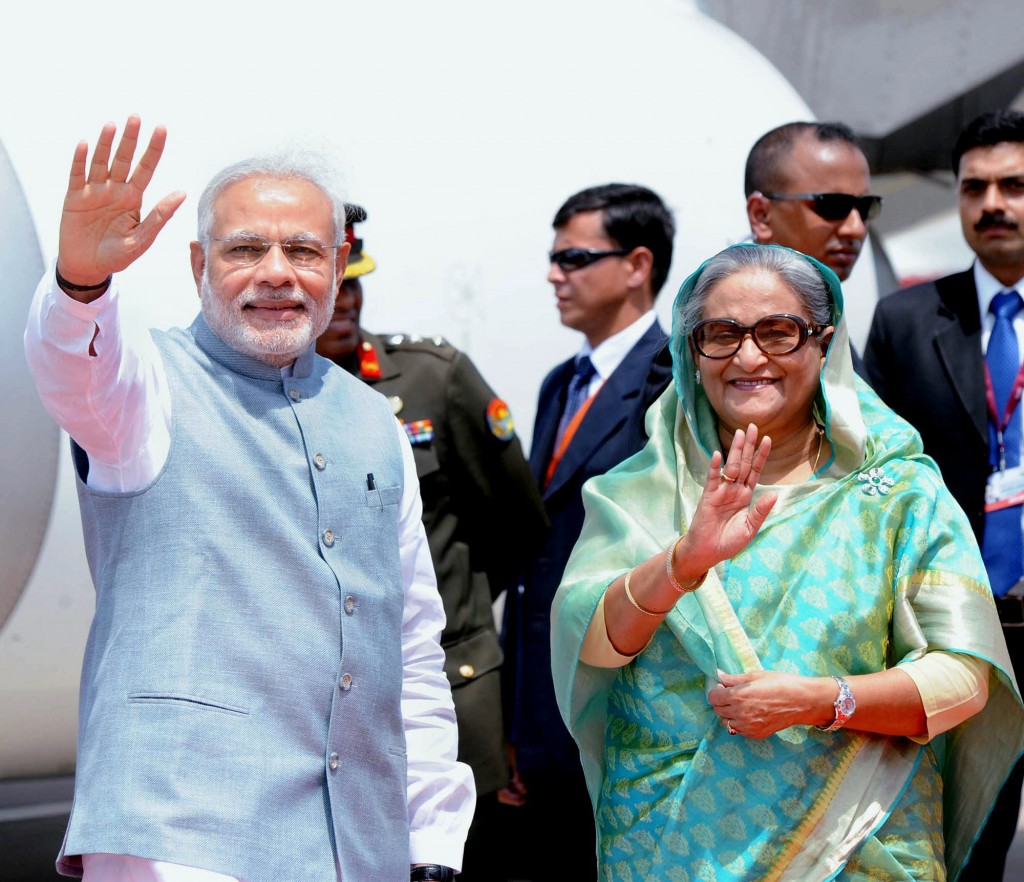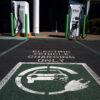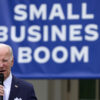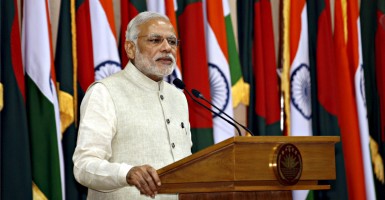One year after the historic election of Prime Minister Narendra Modi of India, policy experts are commending his performance in foreign policy while criticizing his performance in improving the country’s economy.
After winning the first single party majority in a national election in India since 1984, Modi has had steep expectations to fulfill.
A panel of experts spoke about Modi’s first year on Tuesday at The Heritage Foundation.
Professor Sukh Deo Muni, former ambassador and special envoy of India and a fellow at the Institute for Defence Studies and Analyses, praised Modi on foreign policy.
“He has kept the basic structure [of Indian foreign policy] intact, but has put his imprint on it,” he said.
The experts praised Modi for strengthening relationships with India’s neighbors.
Sadanand Dhume, a resident fellow at the American Enterprise Institute, explained that Modi “has made a conscious effort to reach out to countries in India’s periphery that have felt neglected.”
This includes visits to historically overlooked countries like Nepal, Bangladesh, and Sri Lanka, among others.

Indian Prime Minister Narendra Modi (L) and the Bangladeshi Prime Minister Sheikh Hasina (R) wave at the Hazrat Shahjalal International airport in Dhaka, Bangladesh on June 6. (Photo: STRINGER/EPA/Newscom)
Dhume saw these efforts by Modi as essentially pressing the “reset button” with many of these nations.
Modi has also visited with leaders of the U.S., Japan, and Australia.
During these visits, Modi has shown his “willingness to speak about India not just as a leading power, but as a democratic power,” according to Dhume.
Recently, U.S Defense Secretary Ash Carter visited India’s Eastern Naval Command, a major naval base in India.
This reveals Modi’s desire to strengthen ties with the U.S.
Lisa Curtis, a senior research fellow in the Asian Studies Center at The Heritage Foundation, pointed to this event as proof that “there is a convergence between the U.S. policy of rebalancing toward Asia and India’s Act East policy under Modi.”
Curtis believes Modi can do a better job of engaging Pakistan. The neighboring countries have had a complex relationship over time.
“The Modi government’s foreign policy has been a success and India is ready to project its power and influence in the region,” Curtis said. “But looking to the future, Modi needs to find a way to engage Pakistan to avoid a crisis.”
In his domestic policies, the experts contend that Modi has fallen short on delivering his campaign promises.
During his campaign, Modi had spoken of overhauling labor laws, creating millions of jobs, and making sweeping economic reforms.
After a year in office, the experts agreed that Modi could have done more in each of those domains.
“In the end, the success of his foreign policy depends on the success of his economic policy,” Dhume said.






























